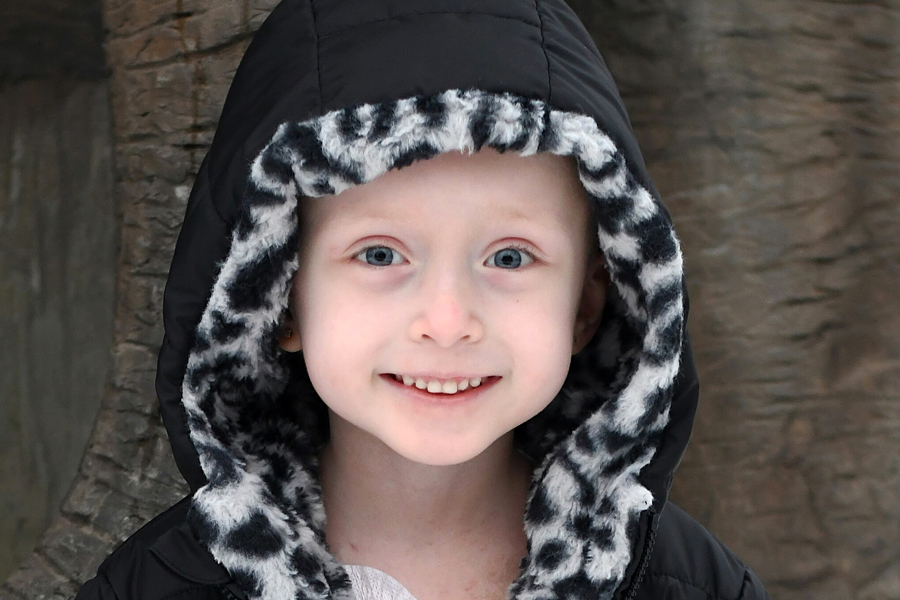
After 3-year-old Celia Grace Hamlett’s gallbladder was removed, the pathologist found a mass that usually co-occurs with the genetic disease MLD (metachromatic leukodystrophy) and recommended a genetic test.
Sure enough, the Alabama girl had the rare disease, which gradually destroys the nervous system and is fatal if untreated. The news sent her parents, Kassie and Gary Hamlett, into shock.
“My body went numb,” Kassie Hamlett recalls. “I was sick. Gary was, too. We couldn’t even drive ourselves home.”
To get the most promising treatment, the Hamletts took Celia Grace to M Health Fairview Masonic Children’s Hospital in Minneapolis. There, a team headed by U of M pediatrics professor Paul Orchard got permission from the FDA to try gene therapy in conjunction with doctors in Milan, Italy. Italy was the only country offering the key part of the treatment: modifying stem cells from the patient to correct the genetic defect.
On September 27, 2021, Celia Grace received an infusion of four IV bags’ worth of cells re-engineered with the normal form of the defective gene—some 500 million cells in all.
Tiny mutation, tragic effect
MLD happens when each parent carries both a normal and a mutated form of a certain gene and each passes their mutated gene to a child. The child can then produce only a damaged form of an enzyme that normally protects the fibers carrying messages from nerve cells.
These fibers, called axons, are wrapped in sheaths made of myelin, an insulating, lipid-based material. Without myelin, the conduction of messages within and between nerve cells would be hopelessly slow and inefficient.
Unfortunately, myelin is prone to a buildup of fatty substances. The normal enzyme prevents this, but the damaged enzyme cannot. In MLD the buildup eventually destroys the myelin sheaths around nerves, causing all manner of mental and physical problems.
Time will tell
In late March 2022 Celia Grace passed her most recent checkup with flying colors. If her body continues to produce the normal enzyme, there’s a good chance she will be considered cured.
Orchard and his colleagues at Masonic Children’s Hospital will follow Celia Grace for at least 15 years. Orchard hopes she will pave the way for other kids with asymptomatic or early-stage MLD to receive gene therapy at the hospital.
“FDA approval might take a couple of years,” he says. “Until then, we’re going to be the only place in the country able to offer this.”
This story appears in longer form in the M Health Fairview magazine Discovery.
- Categories:
- Health
- Early childhood
- Health conditions




